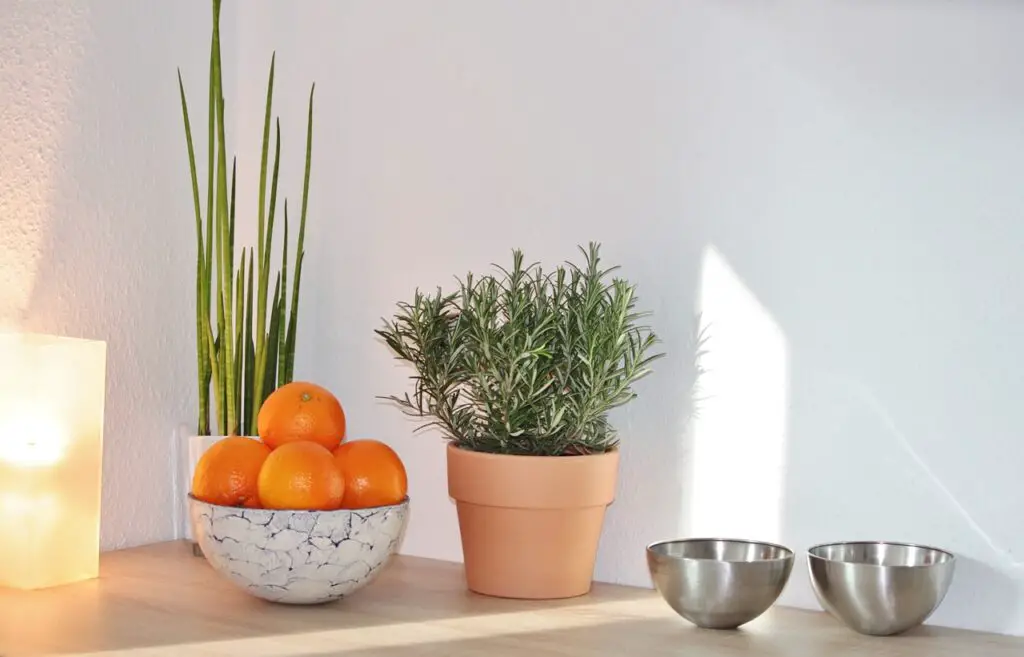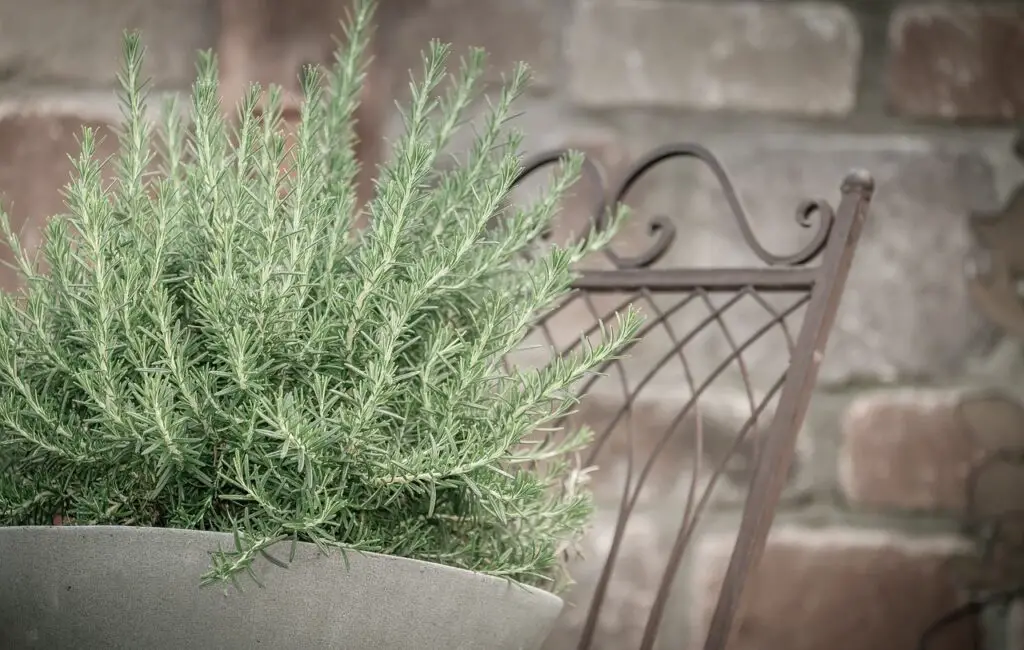
Rosemary is a plant that can’t tolerate high temperatures or extremely lower temperatures. They always love to stay in comfortable weather. Based on the weather, you will discover a maximum of 12 zones.
So, can rosemary survive winter in zone 7? If your zone 7, it is quite possible to die the rosemary leaves when you keep them outside during in winter season. Moreover, when you plant rosemary zone 7, you should take care of your plant in winter to survive in winter.
However, this article helps you get detailed answers about this matter and get pro-caring of Rosemary in winter in zone 7 so that the plant doesn’t die.
What Is Rosemary?
Rosemary is an aromatic evergreen shrub with leaves. It is also similar to hemlock needles. Rosemary is planted both indoors and outdoors at home.
This plant does not tolerate high or cold temperatures. Rosemary grows comfortably in zone 8 to 12. So, a person needs to choose the right zone as well as temperature for growing properly.
On the other hand, Rosemary produces excellent aromatic, which provides great fun for the homeowner. This plant is widely cultivated indoors.
Read More: Will mint grow back after winter?
Can Rosemary Survive Winter in Zone 7?
If you plant Rosemary outside of your home and the weather comes with extreme cold, your Rosemary probably die. In winter, zone 7 is unsafe for Rosemary, and the plant may probably die.
Moreover, Rosemary survives easily in comfortable weather. So, if you think that you have zone 7 weather, you should take some proper action to help Rosemary survive properly.
First of all, you need to take some proper action, like making the environment comfortable and reducing the water of Rosemary.
I would love to suggest you avoid planting Rosemary outdoors in winter in zone 7. It would be better to plant Rosemary inside your home or office when you have zone 7, and the weather is too cold.
Read More: Would you grow mint from cutting?
What Is the Coldest Temperature Rosemary Can Tolerate?

Rosemary always loves to stay in comfortable weather. Moreover, they can’t tolerate excess cold or hot weather. But what is the coldest temperature Rosemary can Tolerate?
Rosemary tolerates 10 degrees Fahrenheit (-12 Celsius) temperature easily. If the plant goes below temperature, Rosemary can’t tolerate it.
When you find your Rosemary plant temperature below -12 degrees C, move your plant indoors so that the temperature increases and the plant grows properly.
Read More: What happens if you plant corn too close together?
Will Rosemary Grow Back after Winter Zone 5?
Rosemary does not die in the winter zone back; of course, it grows back. But, the plant has some problems that are truly worrying for a garden owner.
First of all, the plant is lost its energy to grow properly. Moreover, the growing process becomes very slow, and you may hardly grow the Rosemary with fertilizer and applying other things.
On the other hand, your Rosemary changes its colors and also comes with several diseases. So, if you think that your Rosemary comes under zone 5 in winter, you should take proper steps to care for the plant.
Can Rosemary Survive Winter Indoors?
Of course, Rosemary survives winter indoors. Rosemary survives in -12-degree C temperature. Most of the room temperature is above this temperature.
Moreover, Rosemary is an awesome plant for indoor. Because indoor temperature means comfortable temperature. And you may know that Rosemary loves to survive in comfortable weather.
On the other hand, when you plant Rosemary indoors, you don’t need to do extra care of your Rosemary plant. Overall, it is safe to grow Rosemary in winter indoors.
How to Care for Potted Rosemary in Winter?
To care for potted Rosemary in winter, you have to take some proper and effective steps. However, check out the following points to care for your potted Rosemary in winter.
- Plant It in Direct Sunlight
First, you must ensure that your Rosemary comes with direct sunlight in winter because it needs enough sunlight to control the temperature and adjust with the temperature to grow properly.
- Try to Keep Zone 8 Or More
Rosemary with zone 7 is alright, but more than 8 zones provide better-growing performance. For growing Rosemary, you should choose zone 8 to 12 to get fast-growing performance.
- Keep Cleaning the Water System
If your garden has a water drain system, you must clean it properly because over-watering is harmful to Rosemary. In zone 7, you have to provide enough water to grow the Rosemary and avoid dying.
Does Rosemary Lose Its Leaves in Winter?
Rosemary is an evergreen plant. This plant comes back every year. However, Rosemary loses its leaves in winter because it is natural. You may find new leaves in spring from Rosemary.
However, your Rosemary may lose its leaves in winter because of diseases or some other problems. You should check out each of the sections of the plant to find out the problem.
Moreover, you will also take help from an expert person to find out the problem. You will also check out the plant’s soil, temperature, and things to easily find out the problem.
FAQs (Frequently Ask Questions)
Q: Can rosemary survive outside in Zone 6?
Answer: Probably, the answer is not. Rosemary may not survive outside Zone 6 in winter. Because the temperature and weather are not comfortable for Rosemary when you choose zone 6. So, try to plant Rosemary between zone 8 to 12.
Q: Can Rosemary grow without sunlight?
Answer: The answer is no. Rosemary has to need to be planted in direct sunlight. Because it controls the temperature and adjusts to the weather, you should plant Rosemary in direct sunlight to avoid dying the plant.
Q: Can rosemary grow indoors without sunlight?
Answer: If you consider artificial sunlight, you can plant Rosemary indoors without sunlight. You have to warm the plant to grow properly. If Rosemary doesn’t come with sunlight directly, it may die, and the growing process will also delay.
Hi, my name is Sagor Hossain owner of the gardenlung.com website. I am gardening for nearly 3-years on my rooftop and lawn. I would love to share my experience with you with some tips and tricks and crucial information so that you can grow your garden properly. Stay connected with this website to grow your garden smartly.